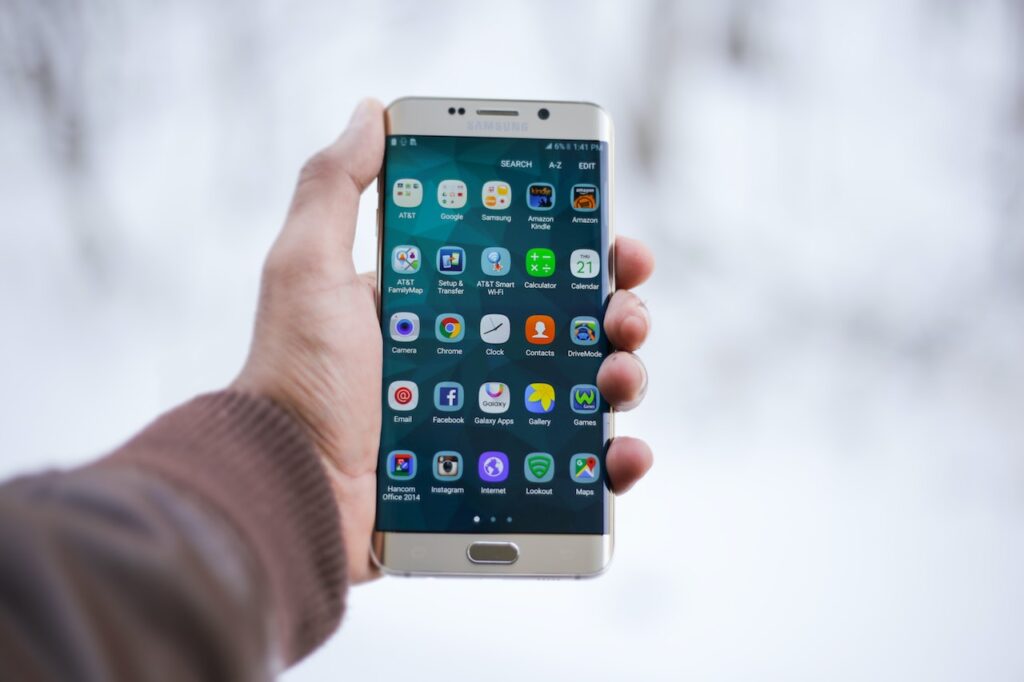
Building a high-level security system on a mobile app is one of the most challenging jobs for app developers. A tiny leak on the security layer is an opportunity for hackers to penetrate your mobile app.
In fact, cyber-attacks are getting more common today. For instance, a link that you thought would lead you to watch social media videos turned out to be a malicious link that makes you get tons of spam messages.
Your app users can also be the victims of other cyber attacks, such as identity theft, phishing, or others. Once your mobile app users feel insecure, they’ll most likely leave your app immediately.
If you plan to launch your mobile app, ensure its security system is at the highest level. But if you’re still unsure, read on to explore a quick guide to secure your mobile app from cyber attacks.
Why Does Your Mobile App Need Top-Level Security?
The need for a robust security system in a mobile app is crystal clear. At the end of 2021, at least 2.2 million cyber-attacks happened on mobile devices. Even though the number has been decreasing from previous years, mobile app users are still prone to cyber crimes.
Moreover, a lack of data privacy in mobile apps can deteriorate your company. Both Android and iOS users showed a similar attitude to data insecurity. 45% would stop using a mobile app that lacks data protection.
A robust security system will protect your app and its users from common cyber attacks such as:
Data Leakage
A data leak happens when sensitive information is exposed on the internet or other external source without authorization. Due to poor security, data leaks can happen via hard drives, mobile phones, or apps.
If sensitive information falls into cyber criminals, they gain unauthorized access to expose the data. They may also take advantage of selling the data to other parties.
Malware Attacks
One of the ways a malware attack happens is because of vulnerabilities in software or apps. Hackers can install malware whenever they notice any leak in a mobile app.
They will have access to collect your data from the app you use. The data collected will be a weapon to attack you back, including spamming you with ads.
Password Attacks
One of the reasons app or software developers ask you to create meticulous passwords is to prevent password attacks. Some common examples of password attacks are credential stuffing, password spraying, and brute-force attacks.
Once hackers can solve your password, they have access to collect your data. However, such a case can be avoided if your app has a high-level authentication and authorization system.
Phishing Attacks
Phishing attacks happen when attackers send malicious links to scam users. If they have access to operate your mobile app, they can take users’ data or send links to take advantage of them.
Ransomware Attacks
A low-level security system on a mobile app can also result in ransomware attacks. It is a case when attackers penetrate your mobile app system and prevent users from accessing their accounts.
When ransomware happens, attackers can lock your app. But what can get worse is that they can steal, delete, or encrypt your app users’ data.
Tips to Secure Your Mobile App from Cyber Attacks
The fact that cybercriminals circle around us is a sign for mobile app developers to improve their app security. Below we’ve pieced together some ways to protect your mobile app from cyber attacks.

#1. Use Code Encryption to Protect Your App
Code encryption is a basic way to build protection for your mobile app. It allows you to scrabble your code text until it becomes an alphanumeric jumble and has no meaning to anyone except they possess the key.
A security vulnerability is a way for hackers to enter your mobile app. However, code encryption can stop them from misusing any data. Keep your code agile and run regular testing for bugs to fix them immediately.
#2. Perform High-Level Authentication and Authorization
High-level authentication and authorization allow you to have strong security layers on your mobile apps. You can authenticate requests from the server end to avoid malformed and harmful entries entering the app.
Moreover, verifying permissions can also prevent attackers from getting access to your back-end information. It will also stop them from gaining access to your APIs. Two-factor authentication is an excellent way to validate a user’s identity and credentials.
#3. Implement API Threat Protection
Another way to protect your mobile app from cyber attacks is by implementing API Threat Protection. It provides an easy shielding solution to protect your app and APIs from unwanted attacks.
API Threat Protection can also verify your app’s authenticity and safety to give optimum protection. Therefore, you can have thick layers of security to shield your app from any potential attacker.
#4. Secure the Data Storage
Secure data storage is paramount for any app, but many developers fail to understand its importance. Some sensitive information shouldn’t be shared with third parties, app log, keyboard cache, the IPC mechanism, and the user’s device during an interaction.
Moreover, you shouldn’t store your mobile app’s code locally. Alternatively, you can store data using keychains or encrypted containers to reduce security risk. You can also perform an auto-delete feature to delete data after a specific period.
#5. Build Secure Backend
It’s vital to have a robust safeguard to your backend. It prevents any malicious cyber attacks on your mobile apps. The secured backend stops unauthorized access, so data leaks won’t happen from the app’s database and server.
As mentioned previously, you can use containerization to store app data and documents. In addition, data encryption is necessary when you transfer it back and forth between different systems and users.
#6. Halt Reverse Engineering to Stop Hackers
One way hackers get into your mobile app is through reverse engineering. You can stop such a case by limiting your app’s user capabilities. This way, most of your app’s functionality is on the server’s side.
It will stop hackers from getting access to your codebase. You can also avoid the illegitimate use of API keys to mitigate any risk. Also, ensure the protection with independent factors needed by the backend server.
#7. Encourage Users to Stay Safe Online
The last thing you can do is encourage users to stay safe online. Educate why they need to create a meticulous password or do multiple verifications.
You can also regularly ask them to maintain a secure environment on your mobile app. The more aware they are, the better their prevention in cyberspace.
Takeaway
As a mobile app developer, having a top-notch security system is paramount. It becomes one of the leading factors in maintaining users and keeping them using your app for a long period.
The above points can be a quick guide for you to secure your mobile app from cyber attacks. Run a regular audit to ensure that you don’t have any leaks where attackers can penetrate your app.

Author Bio:
Natasha Rei is the Digital Marketing Manager of Explainerd, an explainer video production agency. She ensures strategic goals are met by directing online and social media campaigns.